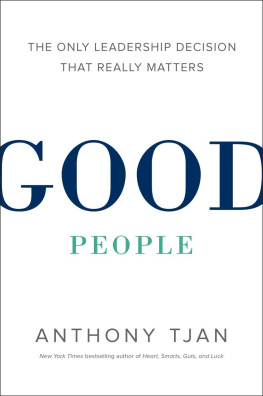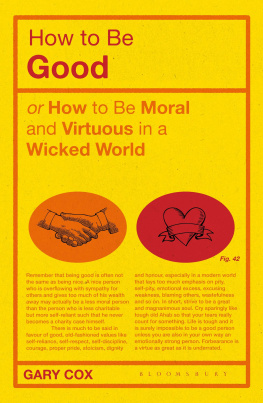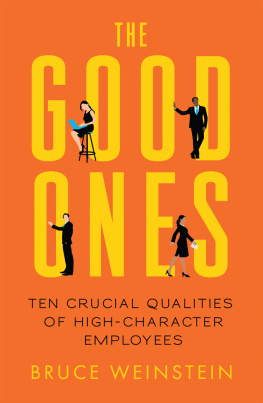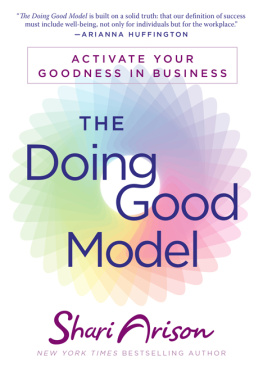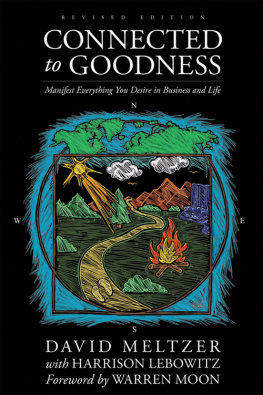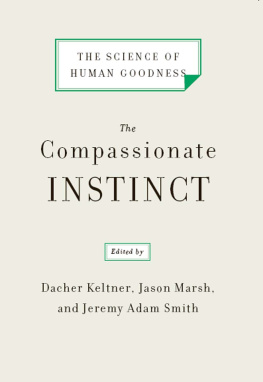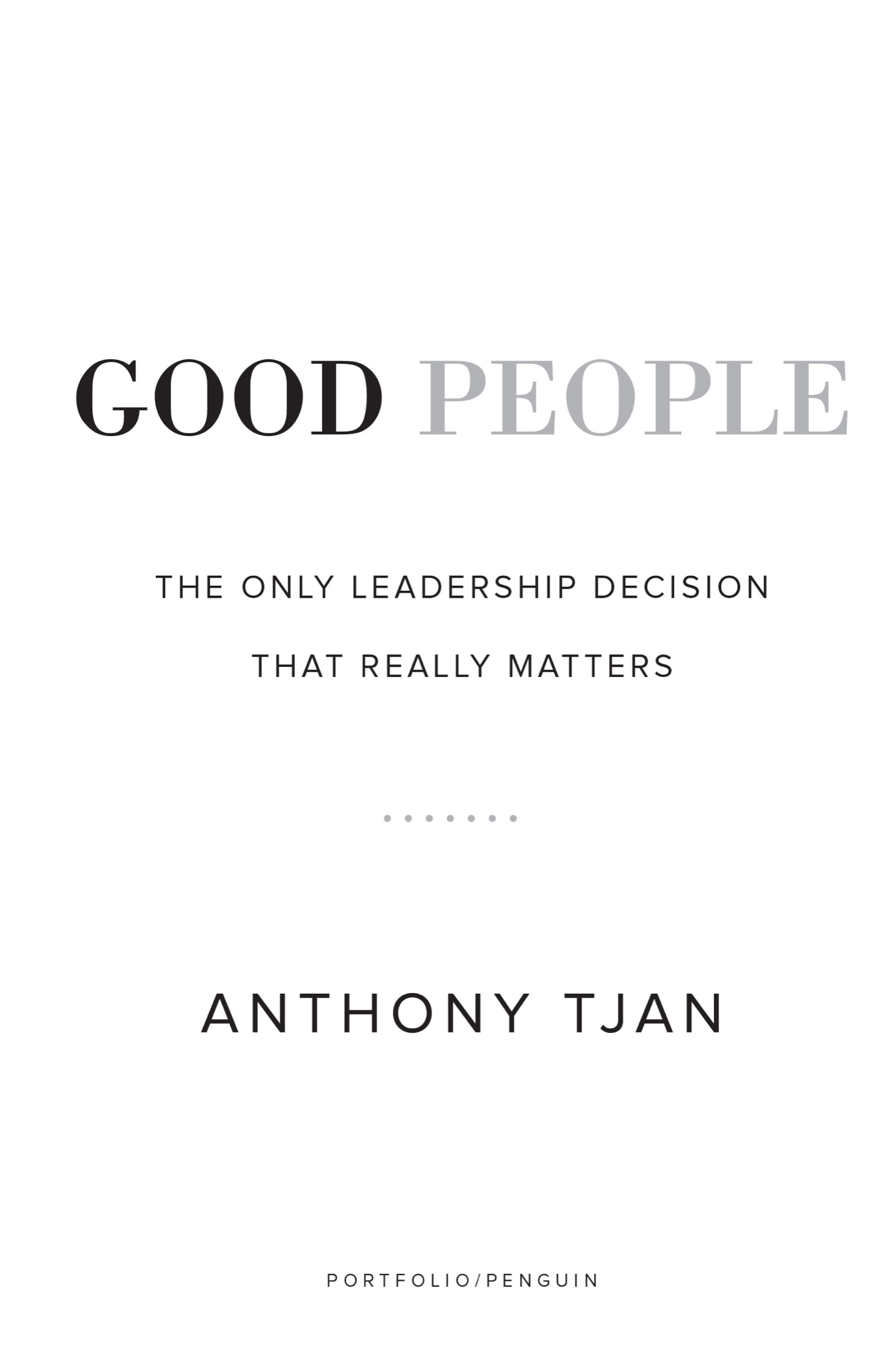Anthony Tjan - Good People: The Only Leadership Decision That Really Matters
Here you can read online Anthony Tjan - Good People: The Only Leadership Decision That Really Matters full text of the book (entire story) in english for free. Download pdf and epub, get meaning, cover and reviews about this ebook. year: 2017, publisher: Portfolio, genre: Politics. Description of the work, (preface) as well as reviews are available. Best literature library LitArk.com created for fans of good reading and offers a wide selection of genres:
Romance novel
Science fiction
Adventure
Detective
Science
History
Home and family
Prose
Art
Politics
Computer
Non-fiction
Religion
Business
Children
Humor
Choose a favorite category and find really read worthwhile books. Enjoy immersion in the world of imagination, feel the emotions of the characters or learn something new for yourself, make an fascinating discovery.
- Book:Good People: The Only Leadership Decision That Really Matters
- Author:
- Publisher:Portfolio
- Genre:
- Year:2017
- Rating:5 / 5
- Favourites:Add to favourites
- Your mark:
Good People: The Only Leadership Decision That Really Matters: summary, description and annotation
We offer to read an annotation, description, summary or preface (depends on what the author of the book "Good People: The Only Leadership Decision That Really Matters" wrote himself). If you haven't found the necessary information about the book — write in the comments, we will try to find it.
Leaders love to say that any company is only as good as its people, but tend to evaluate candidates and employees more by their measurable accomplishments than by their softer qualities, like integrity, compassion, and other values. Bestselling author Anthony Tjan is leading a movement to change the way we think about goodness so that we can become better judges of people and create more goodness in ourselves, in others, and in our organizations.
Tjan argues that while competence is necessary, real goodness must also encompass values; a fantastic rsum can never compensate for mediocre character. In Good People, he provides a clear language to discuss goodness, redefining it as a lifelong, proactive commitment that, like any skill, can be exercised, honed, and taught. When leaders prioritize goodness in themselves and in others, they can create lasting cultures and tremendous value.
Drawing from his own experiences as an entrepreneur and venture capitalist, Tjan also taps into the wisdom of his relationships and interviews with extraordinary innovators, executives, artists, academics, teachers, and role models from all disciplines and walks of life who embody his vision. The cases and profiles shared include: Harvard Business School Dean Nitin Nohria, who has called for balancing leadership of competency with leadership of character; Supreme Court Justice Sonia Sotomayor, who has never forgotten her roots and shows profound kindness to her staff and clerks; Hollywood talent manager Shep Gordon, who has counseled his clients on the importance of generosity and gratitude; legendary venture capitalist Henry McCance, whose success proves that humbly ceding the spotlight to others makes room for their greatness; and master jazz musician Clark Terry, who devotedly mentored the young, blind pianist Justin Kauflin.
Packed with practical yet often surprising advice, Good People establishes a new language and framework you can use to evaluate, develop, and lead with goodness. Tjan will convince you that there is a hard truth in the soft stuff of business, and that choosing and working well with good people is truly the only leadership decision that really matters.
Anthony Tjan: author's other books
Who wrote Good People: The Only Leadership Decision That Really Matters? Find out the surname, the name of the author of the book and a list of all author's works by series.

